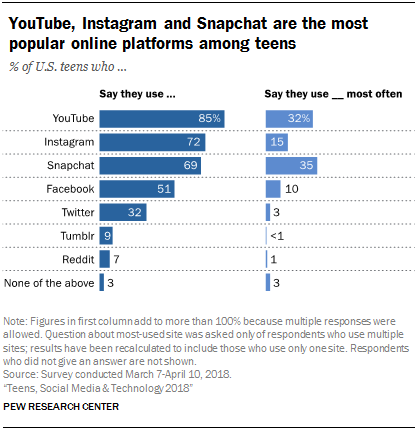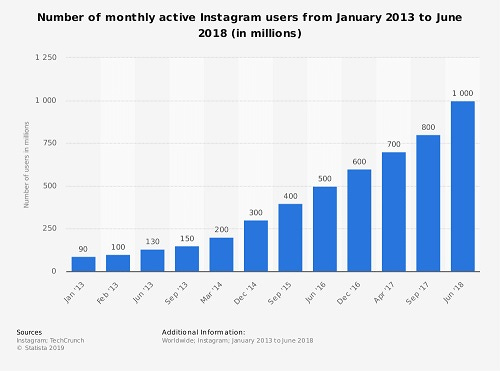Why is Instagram and Facebook removing Like counts
Instagram is testing to hide like counts, Facebook is also doing the same starting with Australia. Is it only about meaningful conversations or is it about business interests of the social network

In 2010, social media in India started scratching the surface. For most of us, Orkut was our first love but it had hit a roadblock. And then came Facebook like a tsunami. What did Facebook have so unique that Orkut never had? Facebook had the ‘Like’ which started the real fight of ego and anxiety battles on social media. No one was spared, everyone had one query – How should I get more likes.
From users to brands everyone went mad. All we wanted a heart full of likes more than our friend or competitor. So many of us overnight became experts who taught and sold Facebook Likes. And publishers like us shamelessly produced news articles – “X is the first brand in Y category to get 1 Million plus Likes.” (Lighthouse Insights at one point did publish such news stories. What a shame!)
Do you remember Klout Score – the social media influence score that once people would share proudly. The entire algorithm was largely driven by the like-minded. I knew so many experts boasting their Klout Score as gallantry medals. In fact, have you seen ‘Nosedive’ (Episode1 of Black Mirror Season 3) on Netflix? If you haven’t then do watch, it is a futuristic version of how likes could define your mere existence in society.
But wait, don’t be depressed. We have some good news. Facebook CEO Mark Zuckerberg wants a future that isn’t as grave Nosedive shows us. He finally is attempting to make the world a better place. Can we trust him or not is a different issue? But no one is questioning until you are growing and making money (Read Facebook’s Q1 2019 financial report.) According to TC after Instagram, Facebook is now officially starting to hide Like counts on posts. Australia is the first country that Facebook is experimenting with.

User posts will no more have the like count on the face unless you have a lot of time and want to click and count the total likes. However, the author of the post can still see the count. Additionally, the counter for comments is still on the posts, to keep your anxiety levels in balance.
According to Facebook, it wants users to focus on the quality of content and how it connects with them before they hit the like button. The network no longer wants you to like something just by seeing the number of likes a post got.
Earlier in 2019, Instagram gave users the option to publicly hide the count on their posts. Initially, the test was rolled out in Canada with an objective on content – “focus on the photos and videos you share, not how many likes they get.” Later the feature was rolled out to six more countries: Ireland, Italy, Japan, Brazil, Australia, and New Zealand.

“We don’t want Instagram to feel like a competition,” said Adam Mosseri, the head of Instagram. “We want people to worry a little bit less about how many likes they’re getting on Instagram and spend a bit more time connecting with the people they care about.”
Joining the Facebook family in this good cause is Twitter. Earlier in March, Twitter launched a prototype app (still under development) called Twttr. On Twttr, the number of likes, retweets, and replies a tweet has received is not immediately displayed. In a tweet, the company’s communications team said: “Putting likes and retweets behind a tap is just an idea to help make conversations easier to read.” A Twitter spokesperson said the change aimed to “[put] the replies in focus”.
Meaningful conversations
All these changes connect to the larger thought of driving “meaningful conversations”, started by Zuckerberg. In January 2018, Zuckerberg pushed the idea of having meaningful conversations. The CEO claimed, “is more beneficial to users when they engage more frequently with people they care about, rather than just scrolling through the news feed and passively looking at posts.”
What looked convincing at a point was soon toppled by a new research that raised doubts on the claim. Researchers at Stanford University and New York University examined the behavior of more than 2,800 Facebook users in an attempt to determine how the site affects people’s well-being. The study found that people who deactivated their Facebook accounts reported similar effects on subjective well-being, regardless of whether they were active or passive Facebook users.
Facebook ended the debate by saying: “We have more work to do, but we’re making steady progress.”
Facebook’s active engagement is a worry
Definitely Facebook has to do a lot more when it comes to ‘Engagement’. According to a report by eMarketer: “Engagement with Facebook is set to decline or remain flat for the foreseeable future.” Users spent an average of 38 minutes per day on the platform in 2018, the report says, down from 41 minutes a day in 2017. eMarketer expects usage to further decline to 37 minutes a day by 2020 and remain flat in 2021.

One of the known reasons for this dip has been Facebook’s lack of popularity with the teens. Pew Research Center’s 2018 report made it clear that teens don’t like Facebook and they prefer Snapchat and Instagram. “When asked which of the online platforms teens used the most, only 10% said Facebook. Thirty-five percent said Snapchat, 32% said YouTube and 15% said Instagram, which is also owned by Facebook.”
Snapchat is where teens are and now TikTok
Teens prefer Snapchat, Facebook knows it. In fact, we all know how Zuckerberg was desperate to buy Snapchat for $3billion in 2013. After Evan Spiegel turned down the offer, Facebook has been working hard to replicate the features of Snapchat on its platform. Has there been a success? Pew Research Center 2018 survey thinks no. “Today, roughly half (51%) of U.S. teens ages 13 to 17 say they use Facebook, notably lower than the shares who use YouTube, Instagram or Snapchat.”

The report further says:
When it comes to which one of these online platforms teens use the most, roughly one-third say they visit Snapchat (35%) or YouTube (32%) most often, while 15% say the same of Instagram. By comparison, 10% of teens say Facebook is their most-used online platform, and even fewer cite Twitter, Reddit or Tumblr as the site they visit most often.
And now we have TikTok doing the dance. According to Nov 2018 data from app intelligence firm Sensor Tower, TikTok’s installs were higher than those of Facebook, Instagram, Snapchat and YouTube in the U.S.
TikTok has got even Indians hooked and hence increased the quantum of worries for Facebook – a market dominated by the social network so far. To tackle TikTok, Facebook has quietly released a new standalone app Lasso in US. Meanwhile, TikTok plans to invest $1 billion in India.
Instagram has a growing problem
Nearly one in three internet users are Instagram users, the free photo and video sharing mobile-first platform (owned by Facebook) crossed one billion monthly active users in 2018. Instagram is now the fastest-growing social network, significantly ahead of its parent company Facebook.

Instagram also redefined the term Influencer Marketing – it is one of the most used social networks by B2C influencers, with 92% of influencers saying it was their most focused on the social network in 2017. According to eMarketer: “About 80% of them say Instagram is their platform of choice for brand collaborations.”

Instagram is a success story for Facebook but it has a problem – Fake Followers, Instagram’s $1.3 billion problems. A problem that Facebook battled a few years ago, will cost brands $1.3 billion in 2019 alone. Basically brands will be paying extra to reach people who don’t exist.
Additionally, there is another problem – Clickbait 2.0 Facebook once was heaven for clickbait articles and publishers, until it was paying the interests of the social network. Then it decided that fooling users is no more required so it went all guns behind clickbait posts and articles. But how can you get rid of your karma, it will come back in different forms. Right now the clickbait era has evolved and it’s now on Instagram.“The shift from counting clicks to counting views in the second age of clickbait content.”
Hiding likes counter – will it work?
Facebook suddenly wants to be the responsible father. Past shouldn’t decide your present decisions. But hiding likes counter, what problem will it solve? Will Facebook let got the ‘Like’ itself? Impossible.
On the face, it will give your anxiety a bit of rest. Research reports clearly show that we tend to engage with content that has got more likes/views. In fact, the entire news feed algorithm was primarily based on it. The more likes or views a post has, chances are that it will have more reach. Indirectly Facebook pushed the creator to go out and do anything to get more likes because of all of a sudden we all wanted to be popular, viral and make money like all other social media influencers. The bubble has to break someday.
The present move from Facebook is a much required first step but it has its own business interests.
Brands – will they be affected?
The recent test is on the content shared by users. There isn’t any information so far if it would be applied to content shared by brands. I doubt if Facebook will do the same. With organic reach dead, brands are already pushing enough money on ads for larger content reach. So it is unlikely.
Nevertheless, the new concept of “Meaningful Conversations” will favor brands. “More replies means more content. More content means more content for advertisers and data miners,” Bernie Hogan, a senior research fellow at the Oxford Internet Institute.
Besides working with influencers, brands already work with agencies or products that work on influencer marketing data. For established influencers, the latest change won’t be an issue but for a new players/influencers, it could be a challenge. The like mentality has been ingrained so effectively in our DNA that it will be difficult to let it go easily. In that case, Facebook/Instagram will recommend a suite of ad products for a better reach sorry better engagement.
Wonder how would social media be without the likes count? Today we almost share our entire life on social media and then start the never-ending checking off how many likes the post got, how many comments and what are people saying. If no one is doing anything then why are people not liking it and if they like why so fewer people. The anxiety levels are hardly resting.
How will we come out of this vicious circle?



